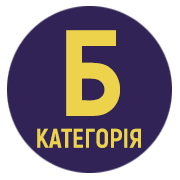ПРИНЦИПИ РОЗВИТКУ ПРОФЕСІЙНОЇ РЕФЛЕКСІЇ МАЙБУТНІХ КЕРІВНИКІВ ІНСТРУМЕНТАЛЬНИХ КОЛЕКТИВІВ У ПРОЦЕСІ ФАХОВОЇ ПІДГОТОВКИ
Анотація
У статті розкрито принципи розвитку професійної рефлексії майбутніх керівників інструментальних колективів у процесі фахової підготовки. Підкреслено необхідність впровадження новаторських методів у сферу мистецької освіти. Наголошено на важливості застосування професійної рефлексії у сфері управління колективним виконавством. Зазначено, що основною умовою для ефективного розвитку професійної рефлексії у майбутніх керівників інструментальних колективів під час їхньої фахової підготовки є систематичне та точне дотримання принципів загальнопедагогічної та мистецької освіти. Окреслено такі дидактичні принципи підготовки майбутніх керівників, як: гуманізація, наочність, системність і послідовність, цілісність і єдність, активність та самостійність суб’єкта навчальної діяльності. Актуалізовано думку, що дані принципи відіграють ключову роль у розвитку професійної рефлексії майбутніх керівників інструментальних колективів та характеризуються їх взаємозв’язком та діалектичною взаємодією. Вони забезпечують створення сприятливого середовища для саморозвитку студентів, доступність складних концепцій через конкретні приклади, а також впорядковане впровадження знань у практику. Інтеграція теоретичної та практичної підготовки, самостійність та активність студентів сприяють формуванню висококваліфікованих спеціалістів з розвиненим рефлексивним мисленням та творчим підходом. Вище окреслені принципи допомагають всебічному розвитку особистості, яка здатна до самостійного мислення і критичного аналізу, що є необхідним для ефективної підготовки керівників інструментальних колективів.
Посилання
Ващенко Г. Г. (1997). Загальні методи навчання: підручник для педагогів. Київ: Українська видавнича спілка. 415 с.
Ґоулман Денiел (2020). Емоційний інтелект. Харків: Vivat. 512 с.
Драч І. І. (2013). Управління формуванням професійної компетентності магістрантів педагогіки вищої школи: монографія. Київ. 455 с.
Падалка Г. (2008). Педагогіка мистецтва: теорія і методика викладання мистецьких дисциплін. Київ: Освіта України. 274 с.
Ростовський О. Я. (2011). Теорія і методика музичної освіти: навч.-метод. посібник. Тернопіль: Навчальна кнга – Богдан. 640 с.
Скопенко О. І., Цимбалюк Т. В. (2006). Сучасний словник іншомовних слів: близько 20 тис. слів і словосполучень. Київ: Довіра. 789 с.





